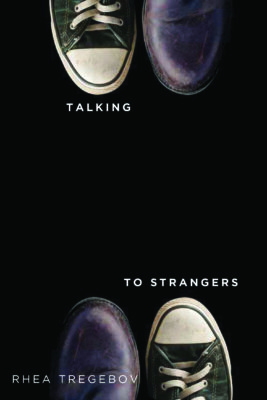To be a flower in Rhea Tregebov’s garden, a bird in her window, a passerby on the street, is to be loved indiscriminately. This generosity of feeling is palpable in every line of Talking to Strangers, the eighth book by an enduring voice in Canadian poetry. The collection proceeds in a series of short, narrative poems, cataloguing a life led in search of love and found in unlikely places.

Talking to Strangers
Rhea Tregebov
Véhicule Press
$19.95
paper
80pp
9781550656602
The simplest things
elude me.
What was the life I had.
Today I don’t
know where I stand […]
today might be yesterday and I
the girl waiting for her life.
Many of the poems are situational, moving from the particulars of observation to a moral quandary answered in the final lines. While quaintly touching, this formula often falls flat – too immediate, too neat – each poem striving for a kind of internal closure that leaves the thread of the collection difficult to sustain at book length.
What joins the poems is Tregebov’s characteristic tenderness and enviable capacity for sympathy. Central to this persona of quiet confidant is the death of her sister, a theme which dominates the collection’s final section, the strongest despite its brevity. These elegies formed from minutiae do not arrive at easy answers, but recall the all too human capacity to seek familiarity in the strange, especially in times of strife. In these moments Tregebov softly asserts herself as both witness to and companion in sorrow. Against the immensity of her grief, is the possibility of love’s consolation, whispered as if into a mirror. Remind yourself: “we don’t need love to be a thing / we can put our hands on to trust.”mRb






0 Comments